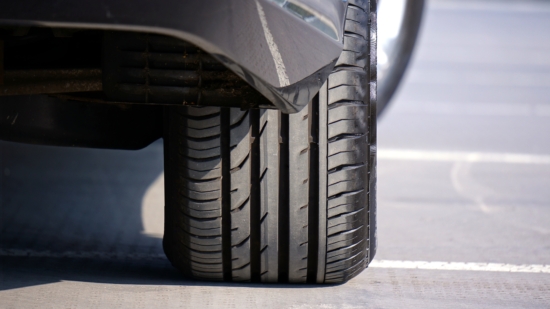Who cares what tyres are made from? – BTMA
 Car tyres currently contain something over 20 per cent sustainable raw materials so the task ahead is considerable (Photo: Mike’s Photography)
Car tyres currently contain something over 20 per cent sustainable raw materials so the task ahead is considerable (Photo: Mike’s Photography)
The US Energy Information Administration recently forecast that the global light-duty vehicle fleet (essentially cars, vans and pick-ups) would increase by 70 per cent by 2050. Closer to home, the UK Department for Transport has forecast that car and van traffic will increase by 35 per cent and 70 per cent respectively over the next 30 years. By another measure and more immediately, global consumption of natural rubber for tyre manufacture is forecast to increase by 33 per cent by 2030.
At the same time over 130 nations have signed up to the Declaration on Forests and Land Use at the recent CoP 26 conference, committing to halt and reverse forest loss and land degradation by 2030. Signatories include the producers of 60 per cent of global natural rubber production.
How can such conflicting requirements be reconciled? What will be the impact on price and availability? More significantly, how will the planet cope? Without major change, the widespread supply chain disruption that we are presently experiencing may, with hindsight, come to look like the proverbial Sunday School outing.
Material sustainability: moving beyond decarbonisation
Is decarbonisation the solution to all these challenges? Zero emission vehicles will still require tyres. This is why manufacturers are looking to make tyres from more sustainable raw materials, reducing embodied CO2 and increasing circularity, offering a double dividend to the environment. Not only to the environment but also to future users. Without this transformation, mobility will become unaffordable, paralysing supply chains and curtailing social interaction and recreation.
Numerous avenues are under development, some well-known, others more cutting-edge. Several manufacturers have committed to making tyres from 100 per cent sustainable raw materials by 2050. In addition, some have committed to ambitious intermediate milestones by 2030. Car tyres currently contain something over 20 per cent sustainable raw materials so the task ahead is considerable.
All this is going on largely unseen by the consumer. Are they interested? Do they care? The widely-held view in the tyre world is that consumers are only interested in price. However, recently-published research in another ‘grudge purchase’ sector – domestic energy – would suggest that attitudes are changing, particularly amongst younger consumers.
Several manufacturers have committed to making tyres from 100 per cent sustainable raw materials by 2050. In addition, some have committed to ambitious intermediate milestones by 2030.
Consultants EY reported that 38 per cent of consumers surveyed stated that their everyday decisions were influenced by sustainability issues, with 62 per cent stating that they were more likely to purchase a product or service that is sustainable. Furthermore, 44 per cent of consumers stated that Covid-19 has made them more aware of sustainability and environmental issues.
EY concluded that sustainability is now a vital factor in influencing customers’ purchasing behaviour, particularly amongst the younger generations: 50 per cent of under 35s said that they were likely to pay more for sustainable products, with the figure falling to a still interesting 33 per cent for over 35s.
Meanwhile, research produced by another consultancy (Deloitte) explored the main reasons why people don’t adopt a more sustainable lifestyle. Top of the list at 22 per cent comes ‘I’m not interested’. By inference that leaves 78 per cent who either are interested or are neutral. 16 per cent said it was too expensive – a long way short of the tyre industry view that the majority of customers are only interested in price. Significantly, 15 per cent reported that they didn’t have enough information. EY also recognised that lack of information was a key factor in translating consumer awareness of environmental impact into purchasing decisions.
In the case of tyres, the information is increasingly available, from manufacturers and trade associations and through the trade press, tyre labels, etc. Consumer attitudes to the environment are changing – consider for a moment the sharp up-tick in sales of electric vehicles. The missing link to better business is the transmission of that information at the point of sale to the increasingly interested consumer.
The British Tyre Manufacturers’ Association (BTMA), which supports and promotes the interests of tyre manufacturers and retreaders supplying the UK market from factories in Europe, offered the above thoughts on the importance of material sustainability.




Comments